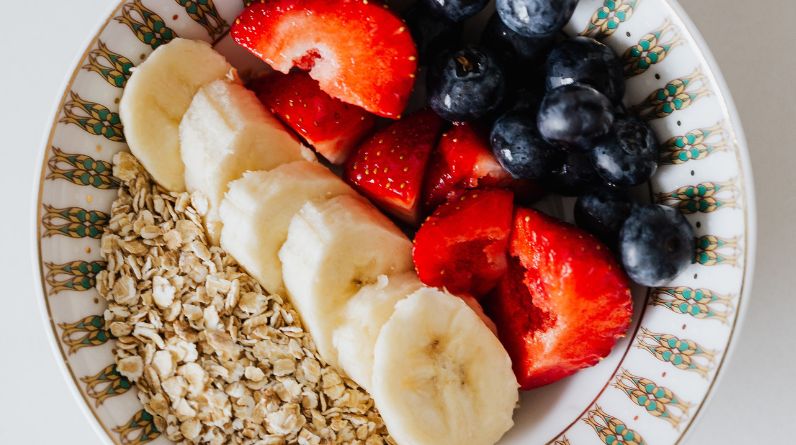In the pursuit of weight loss, many individuals seek ways to accelerate their progress, manage hunger and cravings, support overall health and wellness, and explore natural or herbal alternatives. This comprehensive guide delves into effective strategies for achieving accelerated weight loss while prioritizing holistic well-being and exploring natural solutions.
Seeking Accelerated Fat Loss
Accelerated fat loss refers to the process of shedding excess body fat at an increased rate compared to traditional methods. While rapid fat loss may seem appealing, it’s essential to approach it safely and sustainably to avoid negative health consequences. Here are some strategies for accelerating fat loss effectively:
1. Calorie Deficit:
Creating a calorie deficit is fundamental to fat loss. By consuming fewer calories than your body expends, you force it to tap into stored fat for energy, leading to weight loss. To accelerate fat loss, aim for a moderate calorie deficit of 500-750 calories per day, which can lead to a safe and sustainable weight loss of 1-1.5 pounds per week.
2. High-Intensity Interval Training (HIIT):
Incorporating HIIT workouts into your exercise routine can boost calorie burn and fat loss. HIIT involves alternating between short bursts of intense exercise and brief periods of rest or lower-intensity activity. This approach increases metabolism, promotes fat oxidation, and enhances cardiovascular fitness, making it an effective tool for accelerating weight loss.
3. Strength Training:
Building lean muscle mass through strength training exercises is crucial for accelerating fat loss. Muscle tissue burns more calories at rest than fat tissue, so increasing your muscle mass can boost your metabolism and calorie burn, even when you’re not actively exercising. Aim to incorporate strength training exercises, such as weightlifting or bodyweight exercises, into your workout regimen several times per week.
4. Nutrient-Dense Foods:
Focus on consuming nutrient-dense, whole foods that provide essential vitamins, minerals, and antioxidants while keeping you feeling satisfied. Prioritize lean proteins, fiber-rich fruits and vegetables, whole grains, and healthy fats to support overall health and promote satiety, making it easier to adhere to a calorie deficit.
Managing Hunger and Cravings
Hunger and cravings can sabotage fat loss efforts by leading to overeating or consuming calorie-dense, unhealthy foods. Effectively managing hunger and cravings is essential for maintaining a calorie deficit and achieving accelerated fat loss. Here are some strategies to help you curb hunger and cravings:
1. Eat Regularly:
Consistency is key when it comes to managing hunger. Aim to eat balanced meals and snacks at regular intervals throughout the day to maintain stable blood sugar levels and prevent extreme hunger, which can lead to overeating. Include protein, fiber, and healthy fats in each meal to promote satiety and keep cravings at bay.
2. Stay Hydrated:
Dehydration can sometimes masquerade as hunger, leading you to reach for unnecessary snacks. Stay hydrated by drinking plenty of water throughout the day. Sometimes, sipping on water or herbal tea can help curb cravings and keep hunger pangs in check.
3. Mindful Eating:
Practice mindful eating by paying attention to hunger and fullness cues, as well as the sensory experience of eating. Slow down, savor each bite, and chew your food thoroughly. This allows your body to register satiety more effectively, reducing the likelihood of overeating.
4. Choose Nutrient-Dense Snacks:
When hunger strikes between meals, opt for nutrient-dense snacks that provide sustained energy and satiety. Examples include Greek yogurt with berries, a handful of nuts, sliced vegetables with hummus, or a piece of fruit with nut butter. These snacks not only satisfy cravings but also nourish your body with essential nutrients.
Supporting Overall Health and Wellness
While fat loss is often the primary goal, prioritizing overall health and wellness is essential for long-term success and well-being. Here are some strategies to support your overall health while pursuing accelerated fat loss:
1. Balanced Nutrition:
Focus on consuming a balanced diet that provides essential nutrients to fuel your body and support overall health. Include a variety of nutrient-dense foods from all food groups, emphasizing fruits, vegetables, lean proteins, whole grains, and healthy fats.
2. Adequate Sleep:
Prioritize adequate sleep to support overall health and optimize fat loss efforts. Aim for 7-9 hours of quality sleep per night, as inadequate sleep can disrupt hunger hormones, increase cravings for unhealthy foods, and sabotage weight loss efforts.
3. Stress Management:
Chronic stress can negatively impact fat loss by increasing cortisol levels and promoting emotional eating. Incorporate stress-reducing activities such as mindfulness meditation, deep breathing exercises, yoga, or spending time in nature to promote relaxation and overall well-being.
4. Regular Physical Activity:
In addition to structured exercise sessions, prioritize daily physical activity to support overall health and accelerate fat loss. Incorporate activities you enjoy, such as walking, biking, dancing, or gardening, to increase calorie burn and promote cardiovascular health.
Exploring Natural or Herbal Alternatives
Many individuals seek natural or herbal alternatives to conventional weight loss supplements, preferring products derived from natural sources for perceived safety and compatibility with a holistic lifestyle. While research on the efficacy of these supplements varies, some natural ingredients may offer potential benefits for weight loss. Here are some examples of natural or herbal alternatives to explore:
1. Green Tea Extract:
Green tea extract contains catechins, compounds that may enhance fat oxidation and boost metabolism, potentially promoting fat loss. Studies suggest that consuming green tea or taking green tea extract supplements may aid in fat loss when combined with a calorie-controlled diet and exercise regimen.
2. Garcinia Cambogia:
Garcinia cambogia is a tropical fruit native to Southeast Asia, commonly used in fat loss supplements. It contains hydroxycitric acid (HCA), which is believed to inhibit an enzyme involved in fat storage and appetite regulation. While some studies suggest potential benefits for fat loss, more research is needed to confirm its efficacy and safety.
3. Conjugated Linoleic Acid (CLA):
CLA is a type of fatty acid found in meat and dairy products, as well as in supplement form. Some studies suggest that CLA supplementation may aid in fat loss by promoting fat breakdown, inhibiting fat storage, and increasing lean muscle mass. However, results are mixed, and further research is needed to determine its effectiveness.
4. Apple Cider Vinegar:
Apple cider vinegar has gained popularity for its potential health benefits, including fat loss. Some research suggests that consuming apple cider vinegar may help suppress appetite, increase feelings of fullness, and promote fat loss. However, more studies are needed to evaluate its efficacy and optimal dosage for weight loss.
Conclusion
Achieving accelerated fat loss requires a multifaceted approach that encompasses dietary modifications, physical activity, lifestyle changes, and, in some cases, supplementation with natural or herbal alternatives. By managing hunger and cravings, supporting overall health and wellness, and exploring natural solutions, individuals can optimize their fat loss journey and improve their long-term health and well-being. Remember to consult with a healthcare professional before making significant changes to your diet, exercise routine, or supplement regimen to ensure safety and effectiveness.
Frequently Asked Questions
1. What is accelerated fat loss, and is it safe?
Accelerated fat loss refers to losing weight at a faster rate than typical methods. While it can be safe when approached correctly, it’s essential to prioritize health and safety. Rapid fat loss may lead to muscle loss, nutrient deficiencies, and metabolic slowdown. Therefore, it’s crucial to create a moderate calorie deficit, engage in regular physical activity, and consult a healthcare professional before embarking on any fat loss plan.
2. How can I manage hunger and cravings while trying to lose fat quickly?
Managing hunger and cravings is essential for sustainable fat loss. To curb hunger, focus on consuming filling, nutrient-dense foods that provide satiety, such as lean proteins, fiber-rich fruits and vegetables, and healthy fats. Additionally, practice mindful eating, stay hydrated, and incorporate stress-reducing activities to prevent emotional eating and cravings.
3. What are some natural alternatives to conventional fat loss supplements?
Natural alternatives to conventional fat loss supplements include green tea extract, garcinia cambogia, conjugated linoleic acid (CLA), and apple cider vinegar. While research on their efficacy varies, some studies suggest potential benefits for fat loss. It’s essential to consult with a healthcare professional before trying any natural supplements to ensure safety and effectiveness.
4. How can I support my overall health and wellness while pursuing accelerated fat loss?
Prioritize balanced nutrition, adequate sleep, stress management, and regular physical activity to support overall health and wellness during fat loss. Consume a variety of nutrient-dense foods, prioritize quality sleep, practice stress-reducing techniques, and incorporate daily physical activity to optimize your well-being and accelerate fat loss.
5. Is strength training necessary for accelerated fat loss?
While cardio exercises like HIIT can accelerate calorie burn, strength training is crucial for preserving lean muscle mass and boosting metabolism. Incorporating strength training exercises, such as weightlifting or bodyweight exercises, several times per week can help accelerate fat loss and improve body composition.
6. Are natural fat loss supplements safe and effective?
The safety and efficacy of natural fat loss supplements vary depending on the ingredients and individual factors. While some natural supplements may offer potential benefits for weight loss, such as green tea extract or apple cider vinegar, others may have limited evidence or potential side effects. It’s essential to research thoroughly, consult with a healthcare professional, and use supplements as directed.
7. How can I navigate weight loss plateaus during accelerated weight loss?
Weight loss plateaus are common during any weight loss journey, including accelerated weight loss. To overcome plateaus, reassess your diet and exercise routine, adjust your calorie intake, incorporate variety into your workouts, and stay consistent with healthy habits. Additionally, consider consulting with a healthcare professional or registered dietitian for personalized guidance.
8. What role does hydration play in accelerated fat loss?
Hydration is essential for overall health and supports fat loss by promoting satiety, preventing dehydration, and optimizing bodily functions. Drinking plenty of water throughout the day can help curb hunger, reduce calorie intake, and support metabolism. Aim to drink at least eight glasses of water per day, or more if you’re physically active or in hot weather.
9. Can stress impact accelerated fat loss?
Chronic stress can negatively impact fat loss efforts by increasing cortisol levels, promoting emotional eating, and disrupting sleep patterns. To manage stress during fat loss, incorporate stress-reducing activities such as mindfulness meditation, deep breathing exercises, yoga, or spending time in nature. Prioritizing stress management can support overall well-being and accelerate fat loss.
10. How can I stay motivated during accelerated fat loss?
Staying motivated during accelerated fat loss can be challenging, but setting realistic goals, tracking progress, celebrating achievements, and seeking support from friends, family, or online communities can help. Additionally, focus on non-scale victories, such as improved energy levels, fitness gains, or clothing fit, to stay motivated and committed to your weight loss journey.






